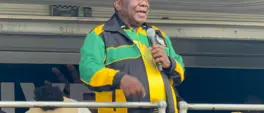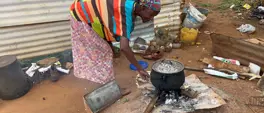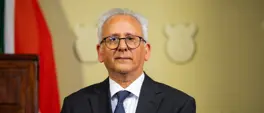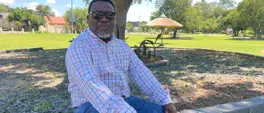How to avoid being duped by 'superfakes' in South Africa
Simangele Legodi
19 September 2024 | 12:15According to Michael Zahariev, co-founder of luxury reseller and authenticator Luxity, the products entering South Africa are created with such precision and attention to detail that even the most discriminating eye would struggle to distinguish the difference.
JOHANNESBURG - In a recent bust, Western Cape police found counterfeit luxury goods worth around R55 million, providing insight into South Africa's growing problem with counterfeit high-end brands.
With one out of every three luxury items submitted for resale being fake, this incident illustrates the country's urgent counterfeit product problem.
According to Michael Zahariev, co-founder of luxury reseller and authenticator Luxity, the products entering South Africa are created with such precision and attention to detail that even the most discriminating eye would struggle to distinguish the difference.
"These items are dubbed 'superfakes' and are part of the reason we employ a dual authentication process, using an internal expert and an independent third party for every item we purchase."
ALSO READ:
Police vow to continue efforts to disrupt trade in fake goods
Citing Michigan State University's Global Anti-counterfeiting Consumer Survey, he states that 68% of consumers have been misled into purchasing counterfeit items, with 39% getting them from online shops and another 39% from social media.
"Given WhatsApp's popularity in South Africa, it has become counterfeiters' tool of choice for targeting unsuspecting buyers."
Zahariev encourages anyone looking to buy real luxury things to avoid prices that appear too good to be true.
"While 'superfakes' aren't as expensive as the actual product, they're nonetheless costly enough to make clients believe they're getting a good deal on the real thing. In general, fakes are sold for up to 35% of the original price, although counterfeiters may demand up to 80%."
#sapsHQ #SAPS and its crime fighting partners remain relentless in their efforts to disrupt and dislodge the illicit trade in counterfeit and contraband goods. In less than 3 weeks, the National Counterfeit Goods Unit led multiple intelligence driven takedown ops in different… pic.twitter.com/OR2C2bUYss
— SA Police Service 🇿🇦 (@SAPoliceService) September 5, 2024
Get the whole picture 💡
Take a look at the topic timeline for all related articles.














